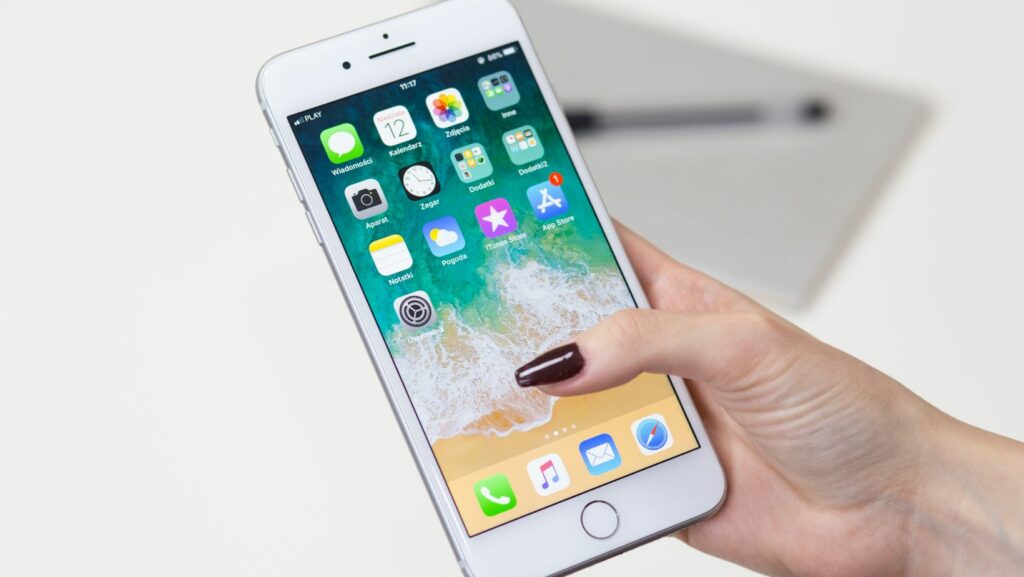Mobile VoIP apps have revolutionized the way people communicate across the globe. These applications transform internet connections into powerful communication tools allowing users to make voice calls data calls and send messages without relying on traditional cellular networks.
In today’s interconnected world businesses and individuals alike are embracing mobile VoIP solutions to cut communication costs and enhance productivity. From popular apps like WhatsApp and Skype to specialized business solutions such as RingCentral and Zoom these platforms offer features that traditional phone services can’t match. They’ve become essential tools for remote teams international businesses and anyone looking to stay connected while avoiding expensive phone bills.
Mobile VoIP Apps
Mobile VoIP apps transform smartphones into advanced communication tools by converting voice signals into digital data packets for transmission over the internet. These applications enable users to make calls, send messages, and share files through internet protocols rather than traditional cellular networks.
How VoIP Technology Works
VoIP technology operates through a three-step process:
- Converts analog voice signals into compressed digital packets
- Transmits these packets across IP networks using internet protocols
- Reassembles the packets at the destination into clear voice output
The transmission process includes:
- Codec implementation for voice compression
- Packet routing through optimal internet pathways
- Quality of Service (QoS) monitoring for call clarity
- Real-time protocol handling for minimal latency
Benefits of VoIP on Mobile Devices
Key advantages of mobile VoIP include:
- Cost reduction of 50-75% compared to traditional phone services
- Multi-device functionality across smartphones, tablets and laptops
- HD voice quality with modern codecs like Opus and G.722
- Advanced features including:
- Video conferencing
- Screen sharing
- File transfers
- Group messaging
- Call recording
| Feature | VoIP Capability |
|---|---|
| Data Usage | 0.5-1.5 MB per minute |
| Video Quality | Up to 1080p HD |
| Maximum Participants | 100+ per call |
| Bandwidth Required | 100 Kbps minimum |
Popular Mobile VoIP Apps Comparison
Mobile VoIP apps offer distinct features, user experiences, and pricing models that cater to different communication needs. Here’s a detailed comparison of three leading VoIP applications based on their core functionalities and performance metrics.

WhatsApp stands out with its end-to-end encryption and user-friendly interface, serving over 2 billion monthly active users globally. The app delivers HD voice quality for VoIP calls at a minimum bandwidth requirement of 64kbps, supporting group calls for up to 8 participants.
| Feature | Specification |
|---|---|
| Voice Quality | HD (up to 32 kHz) |
| Max Group Call | 8 participants |
| File Sharing Limit | 2GB |
| Required Bandwidth | 64-128 kbps |
| Video Call Quality | 720p |
Skype Mobile
Skype Mobile integrates advanced VoIP capabilities with cross-platform compatibility across iOS, Android, Windows, and macOS devices. The platform supports 50-person group calls with real-time translation in 40 languages.
| Feature | Specification |
|---|---|
| Voice Quality | HD (up to 48 kHz) |
| Max Group Call | 50 participants |
| File Sharing Limit | 300MB |
| Required Bandwidth | 100-512 kbps |
| Video Call Quality | 1080p |
Viber
Viber combines VoIP functionality with extensive messaging features, serving 1 billion registered users. The app provides crystal-clear voice calls through its proprietary codec technology with automatic quality adjustments based on network conditions.
| Feature | Specification |
|---|---|
| Voice Quality | HD (up to 32 kHz) |
| Max Group Call | 20 participants |
| File Sharing Limit | 200MB |
| Required Bandwidth | 80-150 kbps |
| Video Call Quality | 720p |
Key Features to Look for in VoIP Apps
Mobile VoIP apps require specific features to deliver optimal communication performance. These essential elements determine the app’s effectiveness for both personal and business use.
Call Quality and Reliability
High-quality VoIP calls depend on several technical specifications:
- Bandwidth optimization: Apps using advanced codecs (G.729, Opus) compress data efficiently while maintaining voice clarity
- Network adaptation: Dynamic adjustment to varying internet speeds (minimum 100 kbps for voice calls)
- Jitter buffering: Built-in systems that reduce audio delays and packet loss during transmission
- Echo cancellation: Advanced algorithms that eliminate audio feedback and echo effects
- Background noise suppression: Intelligent filtering that removes ambient sounds during calls
- End-to-end encryption: 256-bit AES encryption for voice calls text messages
- Authentication protocols: Two-factor authentication multi-device verification
- Data protection: Encrypted storage for call logs messages contact information
- Access controls: User permission settings role-based access management
- Compliance standards: HIPAA GDPR SOC 2 certification for business communications
- Session monitoring: Real-time threat detection unauthorized access prevention
- Network security: VPN support TLS protocols secure connection enforcement
| Security Feature | Standard Requirement |
|---|---|
| Encryption Level | 256-bit AES |
| Minimum Bandwidth | 100 kbps |
| Authentication | 2FA Enabled |
| Compliance | HIPAA/GDPR/SOC 2 |
| Network Protocol | TLS 1.3 or higher |
Cost Considerations
Mobile VoIP apps offer significant cost savings compared to traditional phone services, with variations in pricing models affecting overall expenses.
Free vs Premium Plans
Most mobile VoIP apps operate on a freemium model, providing basic features at no cost with premium upgrades for advanced functionality:
Free Features:
- Voice calls between app users
- Basic messaging capabilities
- Group chat functions
- Standard video calls
- File sharing up to 100MB
Premium Features:
- Calls to landlines & mobile numbers
- Advanced video conferencing tools
- Increased file sharing limits (up to 2GB)
- Custom business integrations
- Priority customer support
| Plan Type | Average Monthly Cost | Features Included |
|---|---|---|
| Free | $0 | Basic calling, messaging |
| Personal Premium | $5-15 | International calls, video |
| Business Basic | $15-30 | Team features, analytics |
| Enterprise | $30-50 | Custom API, advanced security |
Data Usage and Network Requirements
Mobile VoIP apps consume varying amounts of data based on call type and quality settings:
Voice Call Data Usage:
- Standard quality: 0.5MB per minute
- HD quality: 1.5MB per minute
- Group calls: 2-3MB per minute per participant
| Call Type | Minimum Speed | Recommended Speed |
|---|---|---|
| Voice Only | 100 Kbps | 300 Kbps |
| Video Call | 500 Kbps | 1.5 Mbps |
| HD Video | 1.5 Mbps | 3.0 Mbps |
| Group Video | 2.0 Mbps | 4.0 Mbps |
- Adaptive bitrate compression
- Background data restrictions
- Quality adjustment settings
- Offline message queuing
- Wi-Fi-only mode options
Business Applications of Mobile VoIP
Mobile VoIP applications transform business communications by enabling cost-effective voice, video calls, messaging across organizations. These solutions integrate seamlessly with existing business processes to enhance productivity and collaboration.
Team Communication
Mobile VoIP apps facilitate real-time team collaboration through integrated communication features:
- Instant group messaging with threaded conversations for organized discussions
- One-click video conferencing for up to 100 participants
- Screen sharing capabilities for presentations and technical support
- File sharing up to 2GB for document collaboration
- Status indicators showing team member availability
- Voice message recordings for asynchronous updates
- Integration with project management tools like Slack, Asana Jira
| Feature | Capacity | Usage Scenario |
|---|---|---|
| Group Video Calls | Up to 100 participants | Team meetings, training sessions |
| File Sharing | 2GB per file | Document collaboration, resource sharing |
| Message History | Unlimited | Project documentation, compliance |
| Screen Sharing | Multiple screens | Technical support, presentations |
- Local number provisioning in 80+ countries
- Call forwarding to any international destination
- Multi-language voice prompts in 25 languages
- Real-time translation services for 40+ languages
- International toll-free numbers
- Reduced international calling rates (savings up to 90%)
- Time zone management for scheduling calls
| International Feature | Cost Savings | Coverage |
|---|---|---|
| International Calls | 90% reduction | 200+ countries |
| Local Numbers | $5-15/month | 80+ countries |
| Translation Services | Built-in | 40+ languages |
| Toll-free Numbers | $10-20/month | Global access |
Expert Review & Comparison
Mobile VoIP apps have revolutionized how we communicate globally offering unprecedented flexibility and cost savings. These powerful tools combine advanced features like HD voice quality video conferencing and real-time translation with robust security measures to meet diverse communication needs.
As technology continues to evolve mobile VoIP solutions will play an increasingly vital role in both personal and business communications. With their ability to deliver crystal-clear calls extensive messaging capabilities and seamless cross-platform integration these apps represent the future of telecommunications.
Whether for individual use or enterprise-level operations mobile VoIP apps provide an efficient reliable and cost-effective solution for staying connected in today’s digital world.


